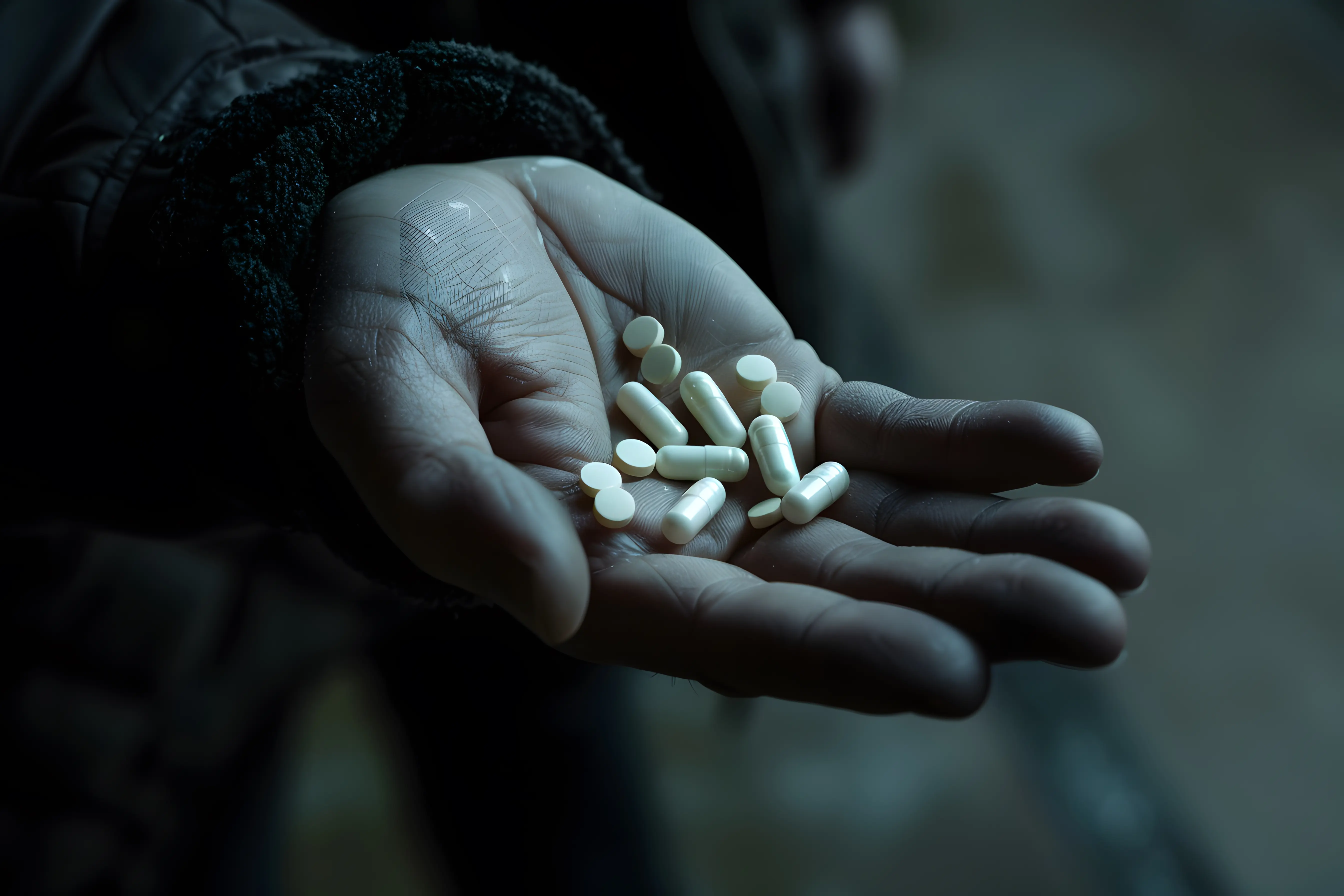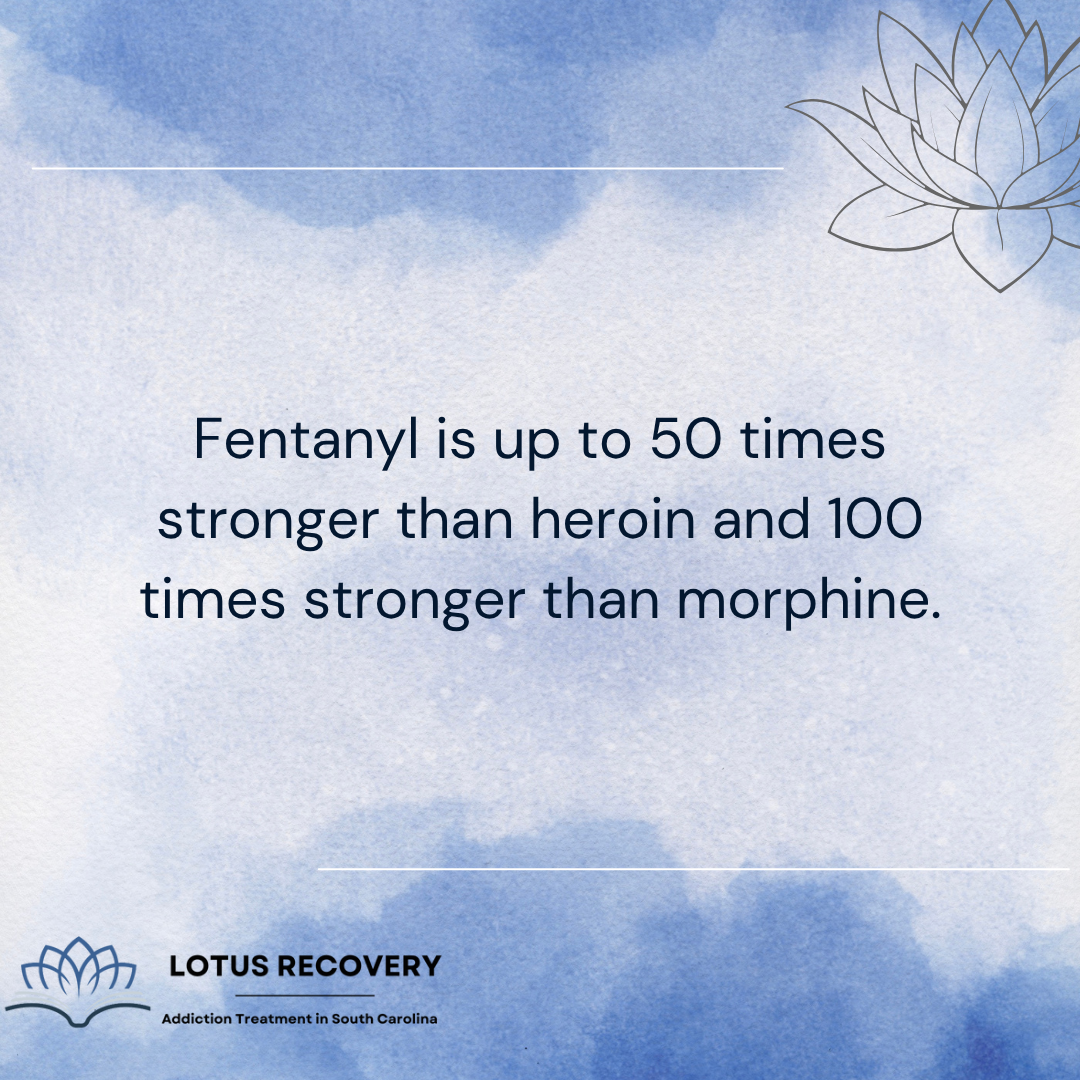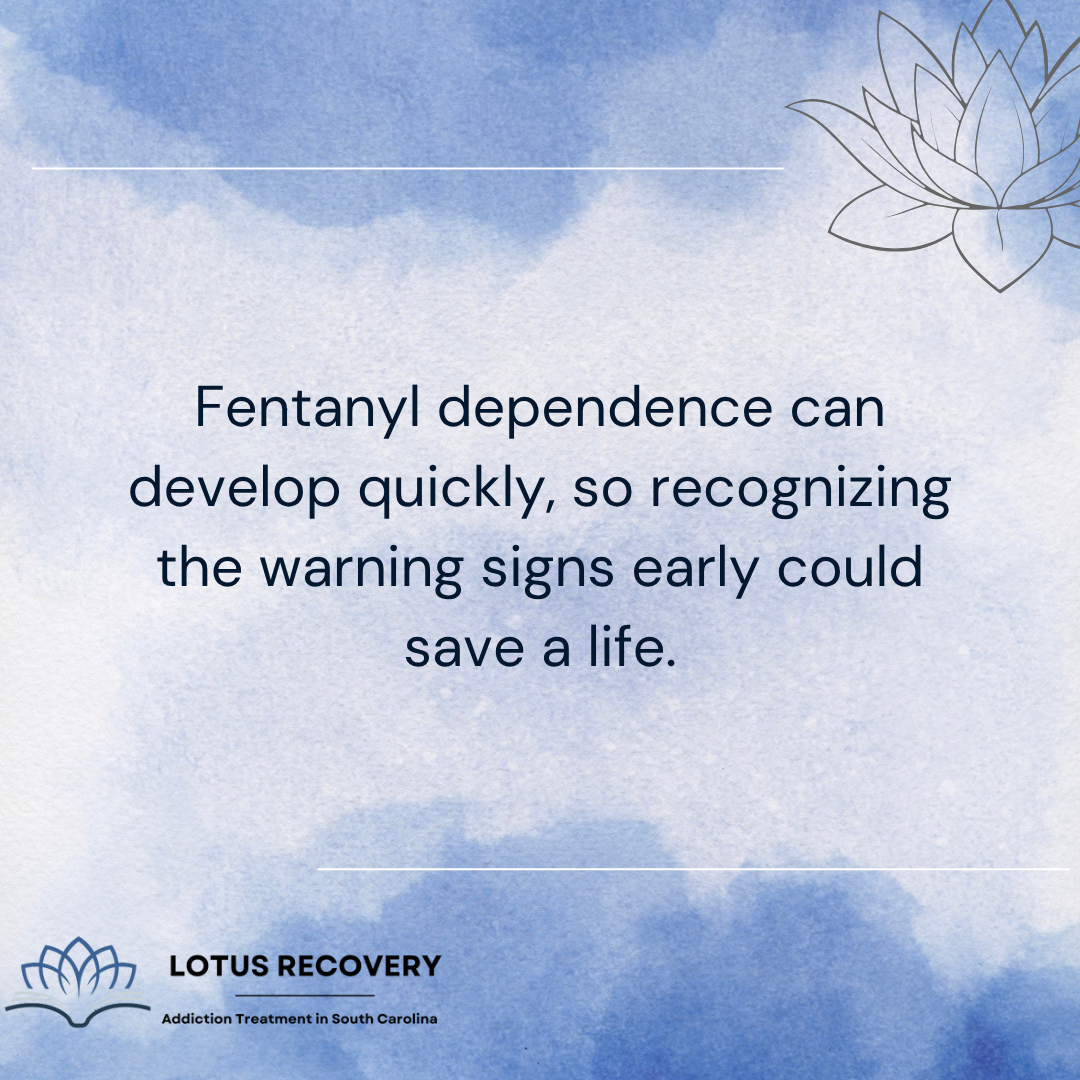
Recognize early fentanyl addiction signs before they escalate into a crisis. Learn how to spot the symptoms and find help through treatment in South Carolina.
The fentanyl crisis is a national issue, and it’s particularly hitting close to home if you live in South Carolina. In 2022, the state recorded 2,296 drug overdose deaths, with those involving fentanyl surging 9%.
Part of what makes fentanyl so dangerous is how quickly dependence can take hold. And understanding fentanyl addiction signs in their early stages can spell the difference between recovery and tragedy.
In this blog, we’ll highlight the key warning signs, explain how fentanyl addiction differs from other opioid misuse, and stress why South Carolina addiction treatment must begin ASAP.

Fentanyl is a powerful synthetic opioid. And for you or anyone using street drugs, that power comes with serious risk. In fact, it’s up to 50 times stronger than heroin and 100 times stronger than morphine. While doctors sometimes use it for severe pain, the fentanyl fueling today’s overdose crisis is usually made illegally and sold on the street.
What makes fentanyl especially dangerous is that you might take it without even knowing. It’s often mixed into heroin, cocaine, meth, or fake pills that look like legitimate medications. Even a tiny amount (just 2 milligrams or a few grains of salt) can cause a fatal overdose.
Fentanyl also acts fast and is incredibly addictive. If you use it repeatedly, it starts to change how your brain works, making it harder to stop.
This is exactly why awareness and early access to alcohol and drug treatment matter so much. If fentanyl is part of the picture, waiting to get help could cost you your life.

As mentioned, fentanyl dependence can develop quickly, so recognizing the warning signs early could save a life. If you’re concerned about your own behavior or someone you care about, pay attention to these common fentanyl addiction signs.
As with other substance use, fentanyl can take a serious toll on your body. This is how it could manifest:
Changes in routine, finances, or relationships can all point to underlying addiction issues:
Fentanyl also has an impact on your mental health. You may notice these signs:

When talking about fentanyl addiction signs, it’s also vital to know the difference between early red flags and a full-blown crisis. This can help you or someone you love get help before things spiral because, as stated, fentanyl is fast-acting and highly addictive.
You might not think you’re addicted, but even subtle shifts in your behavior could signal growing dependence:
By the time it reaches this stage, addiction is deeply rooted and immediate help is critical:
While the statistics paint a worrisome picture in South Carolina, hope is within reach.
If you're facing fentanyl addiction, there are proven paths to recovery through a wide range of alcohol and drug treatment programs across the state. In treating fentanyl addiction, many people approach it with medication-assisted treatment (MAT). MAT uses FDA-approved medications to ease withdrawal symptoms and reduce cravings while you receive counseling and behavioral support.
Depending on your needs, you might choose an outpatient program that allows you to maintain daily responsibilities while attending therapy and medical appointments. Or, if you're looking for a more immersive experience, South Carolina addiction treatment centers offer residential and partial hospitalization care designed to help you stabilize and rebuild.
30 day recovery programs near me can also be a vital first step, as it gives you the structure, accountability, and clinical support to begin healing. Now, if you’re dealing with long-term substance use or multiple relapses, 90-day programs offer extended care that helps solidify new habits and prepare you for long-term success.

Reviewer
Henna is a content strategist with over 5 years of experience in behavioral health marketing. She specializes in creating informed, compassionate content for addiction treatment centers, using her deep understanding of the industry to educate, engage, and support individuals seeking recovery.